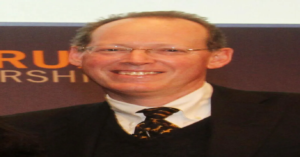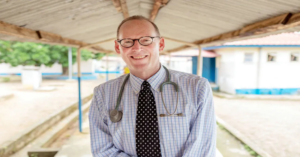Who Was Paul Farmer?
The Man Who Carried Coffins: Why Paul Farmer Still Haunts Us

You could smell Haiti on him.
Not perfume, not antiseptic – but earth. Dust from mountain footpaths, woodsmoke from charcoal stoves, the faint tang of sweat from walking miles in the humid heat to see a single patient. That’s how Dr. Paul Farmer would show up at fancy Harvard conferences: rumpled khakis, a worn backpack slung over one shoulder, and the scent of a place most attendees only read about in reports.
He wasn’t just a doctor. He was a walking reproach.
A reminder that while we debated “cost-effectiveness” in air-conditioned rooms, real people – people with names like Jean-Claude and Florence – were dying of stupid, preventable things right now because they were poor.
The Night That Forged Him
Picture Cange, Haiti, 1985. A young Paul, barely out of med school, is called to a hut clinging to a hillside. Inside, a woman is dying in childbirth. Eclampsia. Her blood pressure is skyrocketing. She needs magnesium sulfate. Now.
But there is none. Not in this clinic. Not anywhere reachable before dawn.
He holds her hand. He watches the light leave her eyes. He delivers her stillborn baby by lantern light.
“It wasn’t for lack of knowledge that killed her,” he’d say later, voice tight with a fury that never really left him. “It was less of imagination. Lack of will to get the right tools to right place.”
That night didn’t break him. It lit a fuse. He vowed: Never again. Not on my watch.
“Mèt Kòk” (Master Rooster) in the Mud
In Haiti, they called him “Mèt Kŏk” – Master Rooster. Not because he crowed, but because he never, ever stopped moving.
You’d find him:
- At 4 AM: Scrubbing the floor of the clinic in Cange because the cleaner was sick.
- By Noon: Performing surgery, his glasses fogged with sweat.
- At Dusk: Haunting the hills with a backpack full of antibiotics, chasing down a TB patient who’d missed an appointment.
- Deep into Night: Typing furious emails to drug companies or donors, demanding cheaper meds, more funds, faster.
He didnot saint. He was exhausting. He’d forget meals, sleep on floors, push colleagues to their limits with his relentless “What else can we do?” His own health? Often an afterthought.
“Rest is a weapon of the rich,” he’d joke darkly.
The Revolution Was Built by Grandmothers

Paul’s genius wasn’t just medical. It was human.
So he knew a fancy American doctor parachuting in was useless. The real magic? The grandmothers.
He hired them. Trained them. Paid them. Called them “accompagnateurs” – companions.
- Marie-Marthe, a widow who lost two sons to AIDS, became an expert in HIV meds. She’d walk 3 hours uphill, sit with a scared young mother, crush pills into porridge, hold hand. “You eat. You take this. You live for your baby.”
- Old Jean-Pierre, crippled by polio, became the TB tracker. He knew every hidden footpath. He’d find the missing patient, not to scold, but to ask: “What stopped you? No food? No bus fare? The landlord locked you out?” Then he’d fix it.
This was Paul’s secret: Medicine only works when it’s wrapped in dignity, delivered by someone who knows your name, your kids, your struggles.
He didn’t build a charity; he built an army of neighbors healing neighbors.
The Phone Call That Shook the World
2001. The AIDS plague is swallowing Haiti. Big global health agencies say: “Antiretrovirals (ARVs) in places like this? Impossible. Too expensive. Too complex. They won’t take the pills.”
Paul storms into his tiny office in Cange. He’s furious. He picks up a clunky satellite phone.
“Hello? Cipla Pharmaceuticals? India? This is Paul Farmer in Haiti… Yes, HAITI. Listen, your drugs cost $20,000 a year here. My patients earn $200 a YEAR. That’s a death sentence. We need generics. NOW. What’s your REAL cost? …$350? We’ll take it. No, I don’t have the money yet. But I WILL.”
He hung up. He started begging donors. He leaned on friends. He shamed governments.
- Within a year, the price plummeted to $80.
- Within two years, his accompagnateurs proved Haitians took their pills better than patients in Boston.
The “impossible” became routine. Millions lived because one stubborn man in a muddy clinic refused to take “no” for an answer.
The Weight Paul Farmer Carried
It was not all victories. The losses carved canyons in him.
- Carrying Tiny Coffins: After a cholera outbreak he couldn’t stop fast enough.
- The Fury: Walking past gleaming, empty hospitals in Port-au-Prince built after the earthquake, while his patients in Cange still waited in tents. “Architectural malpractice!” he’d roar.
- The Doubt (Rarely shown): Late one night, over bad coffee, he might murmur: “Are we even making a dent? The tide feels so strong…” But by dawn, he’d be back on the trail, backpack heavy with meds.
Why he Still Walks Among Us (February 21, 2022)
He died in his sleep. In Rwanda. On the grounds of the beautiful Butaro Hospital he helped build in hills once soaked in blood during the genocide. Poetic. Perfect. Devastating.
The world wept. But if you listen, you can still hear him:
- In Butaro’s Cancer Ward: Where a Rwandan nurse gently explains chemo to a farmer who once thought cancer was a curse. World-class care. In the hills. Because Paul insisted.
- In Zanmi Lasante, Haiti: Where Janine, herself once cured of TB, now rides a motorcycle (paid for by PIH) to reach six remote patients before lunch. Accompaniment. In action.
- In Medical Schools: Where a tired student reads Farmer’s books and thinks: “Screw ‘lifestyle specialties.’ I’m going where I’m needed.”
- In You: When you see someone suffering and think “That’s not right,” and instead of looking away, you ask: “What can I carry?”
Paul Farmer Real Prescription
Paul Farmer didn’t just treat diseases. He treated indifference.
He diagnosed complacency.
His medicine was radical, inconvenient, expensive love.
He showed us that “health for the poor” isn’t about charity drops from a great height.
It’s about getting down in the dirt.
It’s about listening – truly listening – to the woman trembling in fear.
It’s about paying the grandmother, trusting the farmer, fighting the drug company, and yes, sometimes scrubbing the damn floor yourself.
It’s about refusing, with every fiber of your being, to believe that any life is worth less than another.
That’s why he haunts us.
Because the work isn’t done.
The backpack is heavy.
The trail is long.
And somewhere, right now, another Marie-Therese is waiting.
Pick it up.
Start walking